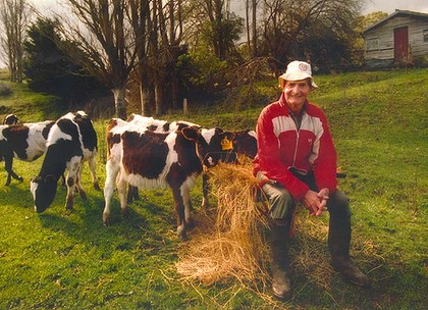
The unexpected blessing of consistent prayer
I like consistency. I run the same route every day for my morning run. I know the exact places on the course where I will hit distance goals. I know the houses where there are dogs and which ones bark, which ones will come out to meet me, and which ones just watch me run by. I know where the pavement is uneven and where it is smooth. The consistency of running the same route and learning all these details allows me to give little attention to where I am and where I am going. It allows me the freedom to just enjoy the run because the details of the route, distance, and road hazards are so well known they require little notice.
The familiarity provided by consistency also allows me to focus on other things. I have employed prayer prompts for many years to remind me to pray for certain things. Prayer prompts are places and things that remind you to pray for a specific need when you see them or pass them by. Once, a pastor asked me to pray for an issue his family was facing. So, every morning when I ran past his home, I prayed for him and his family. Over the years, the specifics of what I pray as changed. But every morning, as I run down his road, I still pray for him, his family, and his church.
Momentary light afflictions
My family has a beloved story about my grandfather’s reaction to my dad taking up running. It was the early 1980s when running was not as popular as it has become today. My grandparents had come to celebrate my dad’s completion of the Callaway Gardens Marathon. When the race was over, my grandfather, who knew nothing about marathons or those who ran them, asked my dad if he had won the race. My dad told him that he had not, nor had he expected to win. Now a little confused about why my father would give such effort and even pay the entry fee to run a race that he did not expect to win, my grandfather asked if he got anything for running? To this question, my dad held up the t-shirt given to the race participants and said, “I got a t-shirt.” Then, my grandfather turned to my grandmother with a smile and said, “I think we have raised a fool.” My grandfather enjoyed a good joke, and he spoke these words with a grin, but I have to believe that though he intended these words as a lighthearted ribbing, they did reveal his befuddlement as to why anyone would suffer through running 26.2 miles just for a t-shirt.
It seems foolish indeed to those watching. One of the more common remarks, made in jest by those who are not runners, is that runners look so unpleasant while running. They say our faces carry the expression of pain and our general demeanor communicates suffering. The question is then asked, why would anyone want to do something that makes you so miserable?
Direction is more important than position
It is so common among the church culture that I grew up in and now pastor that few, if any, notice it. An overly harsh judgment would declare this behavior as pseudo-humility, even willfully fake humility. A more gracious judgment would recognize a need for a better and deeper understanding of what salvation does to sin and our lives. I am talking about how many Christians speak with hopeless defeat about their struggle with sin and obedience to God’s word. There is even an overly used, often misunderstood, and theologically deficient phrase that embodies this issue – “I am just a sinner saved by grace.”
Sometimes “just a sinner saved by grace” is employed to excuse or rationalize the behavior of an unrepentant sinner. However, more often, it is spoken by one who truly desires to live righteously before the Lord but feels a need to show humility rather than confidence. Sometimes this same sentiment shows up more subtly. A teacher teaching on an issue of sin will preference their comments with “I fail at this all the time.” A preacher proclaiming from a text that calls the saints to a specific response may temper his words with “we all fall short of this.” In all these things, there is a prominent attitude of defeat. There is an assumption that failure, disobedience, and inadequacy are the norm. Such an attitude recognizes that we should feel bad about not perfectly obeying the commands and expectations of scripture but offers no hope that anything, but a perpetual state of disappointment, can be known.
Just keep running - the story of Cliff Young
The story of Cliff Young has always fascinated me. If you have not heard of Cliff Young then let me tell you a story of how a 61-year-old farmer turned the professional running world upside-down.
In 1983, Australia hosted its ultramarathon, a 573.7-mile foot race from Sydney to Melbourne. This is a race that takes days to run, and professionals from all over the world came to participate. Shortly before the race began, a 61-year-old farmer named Cliff Young, wearing overalls and galoshes over his boots, walked up to the registration table and requested a number to enter the race. The people at the registration table thought it was a joke—that somebody was setting them up—so they laughed. But Cliff Young said, "No, I'd really like to run." So, they gave him a number and pinned it on his old overalls.




